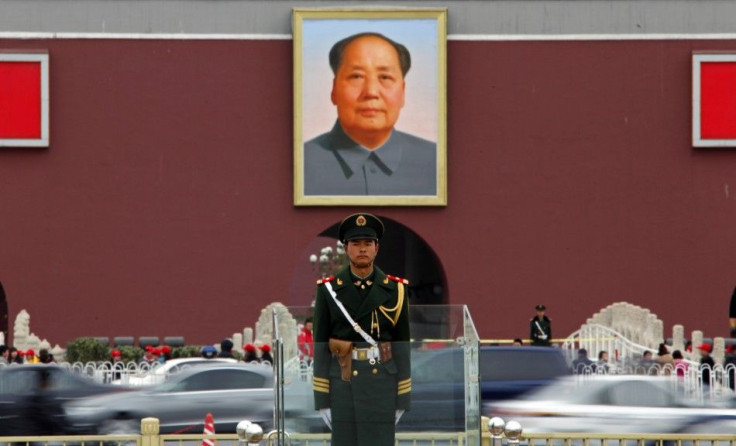China Urges U.S. to Act Responsibly on Debt Ceiling

Analysis
China Thursday urged the United States to protect the interests of its investors by adopting responsible policies and measures, the Voice of America reported Thursday, an announcement that underscores the essentialness of the U.S. action to raise its debt ceiling.
China, the U.S.'s largest creditor, with U.S. investments totaling more than $1 trillion, did not overtly call for the U.S. Congress to raise the nation's debt ceiling, but the Beijing comminque provides another data point indicating that time is running out on Congressional lawmakers, before investors price-in the increased risk of a possible U.S. Government default on its debt and/or a missed payment for interest or principal.
The U.S. Congress has until the end of August 2 to raise the U.S. debt ceiling from its current $14.29 trillion level to enable the government to pay its bills and service any debt coming due.
China's encouragement on the debt ceiling follows a candid-and-frank evaluation of the U.S.'s financial condition from the U.S.'s top monetary official, U.S. Federal Reserve Chairman Ben Bernanke.
On Wednesday, Ben Bernanke, in his regular, semi-annual testimony on the U.S. economy on Capitol Hill, underscored that a default would trigger a huge financial calamity adding that it would send a financial shockwave throughout the global financial system.
Bernanke said U.S. Government bonds are considered the lowest-risk bond investment class in the world, and serve as a benchmark for interest for other, more-risky bond classes. If investors can't count on the safety of U.S. debt, Bernanke said, they would ask for higher interest on that asset class, pushing up the interest rates in other assets, among other ripple effects.
Republicans and Democrats in Washington have been at loggerheads regarding how to cut the budget deficit in conjunction with raising the debt ceiling.
Republicans argue that Congress should substantially cut government spending to cut the budget deficit. Meanwhile, Democrats insist that revenue increases must be a part of the talks for any meaningful and enduring deficit reduction to occur.
On Thursday a 'ray of light' appeared at the debt talks when it was learned that Senate Majority Leader Harry Reid, R-Nev., Is working with Minority Leader Mitch McConnell, R-Ky., on a strategy that would combine McConnell's debt limit proposal with at least $1.5 trillion in spending cuts identified by Vice President Joe Biden's bipartisan deficit reduction committee, The Washington Post reported Thursday.
The deal would create a bipartisan 12-member Congressional committee who would be assigned to identify trillions of dollars in additional savings. The committee's recommendations would be fast-tracked to votes in the House and Senate, and amendments would not be possible. Congress uses a similar process to close military bases.
White House Spokesman Jay Carney offered additonal evidence of Thursday's 'ray of light' by saying debt talk progress occurred on Day 5 of the talks.
There is now a foundation on which we can build, Carney said Thursday, USAToday.com reported. Carney said both sides have agreed informally on at least $1.5 trillion in debt reduction over the next 10 years, adding that, Nobody said this was going to be easy. We believe, despite everything, that we are making progress.
Political/Public Policy Analysis: Call it one-up, one-down on Day 5 of the debt talks. China's concern indicates growing global anst over the delay in the U.S. debt ceiling increase -- a precursor of a negative turn in investor sentiment that could rock financial markets globally -- but word that there is informal agreement on at least $1.5 trillion in debt reduction, is encouraging. Therefore, put the risk of default, on a scale of 0 to 100, at 35 percent, down from 40 percent on Wednesday.
© Copyright IBTimes 2024. All rights reserved.





















